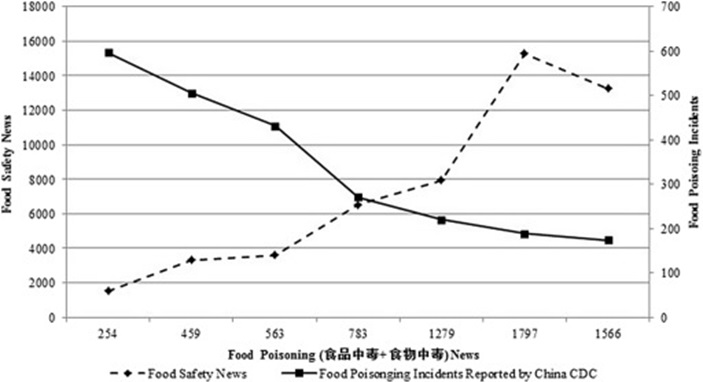For years, China was seen as a country with healing food filled with herbal remedies. But recently, the safety and hygiene of the food being produced in China is raising eyebrows. From recycled oil to toxic chemicals and preservatives in food, the food industry is serving bowls of chemicals, rather than healthy meals.
As China is a busy, bustling country, restaurants must be able to keep up with the demand – instant and quick meals. It allows profit-hungry food industries to meddle with ingredients that can substitute hours of cooking, to a few minutes with similar tastes. Illegal food additives are smuggled into restaurants and into people’s stomachs, as food vendors and marketplaces sell them. But what are these additives doing to our bodies, and what exactly is it made out of? Ingredients such as borax, lead, melamine, are found in products from street vendors and restaurants, which can cause major health issues like kidney stones, diarrhea, or even death.

[Source: Sciencedirect.com, Screenshot by Author Ye Ji Jong]
Bean sprouts are also drenched in growth hormones, bleaching powder, and preservatives to seem fresher, bigger, and riper. Livestock, such as pork and chicken lacking regulation, are filled with growth hormones. Farms are littered with medicine packets that are meant to increase growth and fight illnesses. Huge amounts of antibiotics and growth hormones can cause major health problems and produce bacteria resistant to medicine.
China’s government has claimed to take action against these health concerns in food. But why haven’t we seen improvement? The answer lies in the lack of implementation of laws. By considering the complexity of China’s domestic food industry, with about 450,000 food production and processing companies, compliance with the high safety standards is extremely difficult.

[Source: Associated Press, Ng Han Guan]
China’s food safety concerns aren’t just their domestic issue, it’s global. With China’s increasing engagement in global agricultural markets and supplying products to other countries, it causes international safety concerns. Food and ingredients are found all over the world, stocking up shelves, which may also contain toxic chemicals.
In conclusion, food safety raises concerns both domestically and internationally for China. Unethical and illegal practices are common, as the food industry values profit over health. Chinese government officials should find more effective ways to fight unsafe chemicals found in products for the safety of consumers.
Ye Ji Jong, Grade 10
Cypress High School

